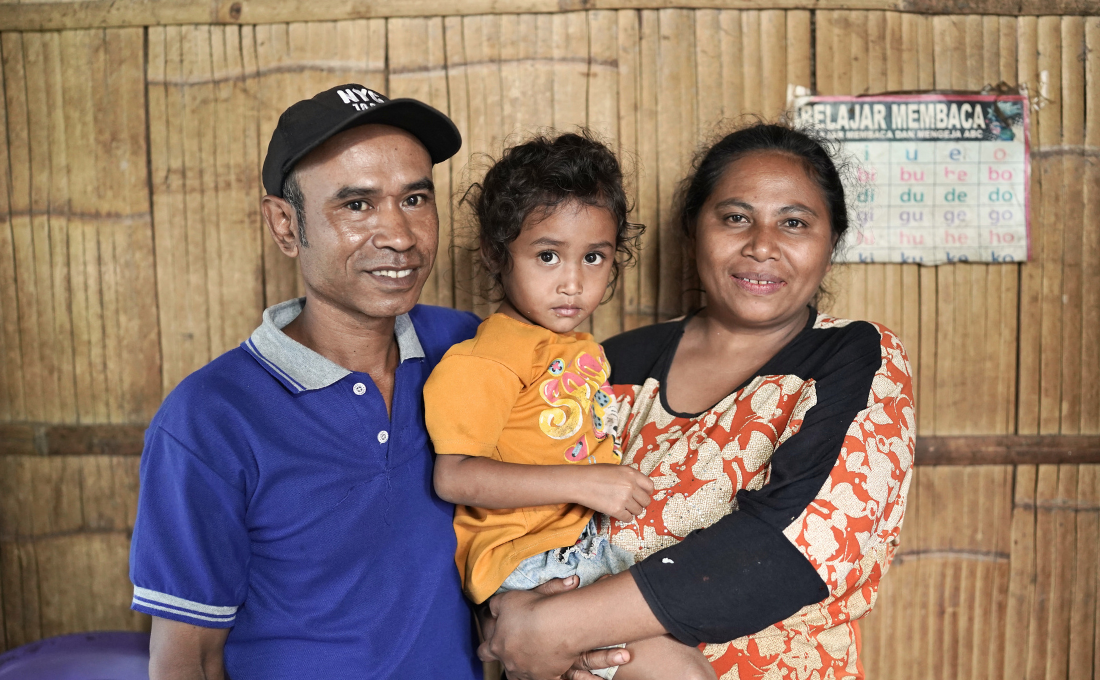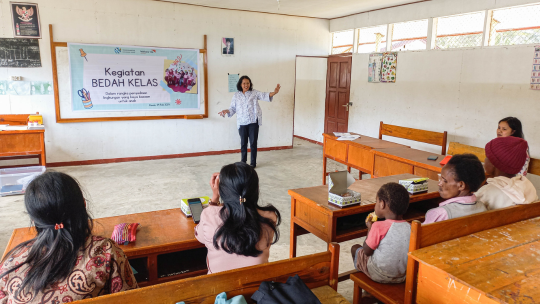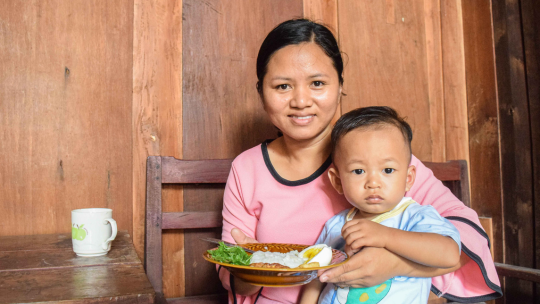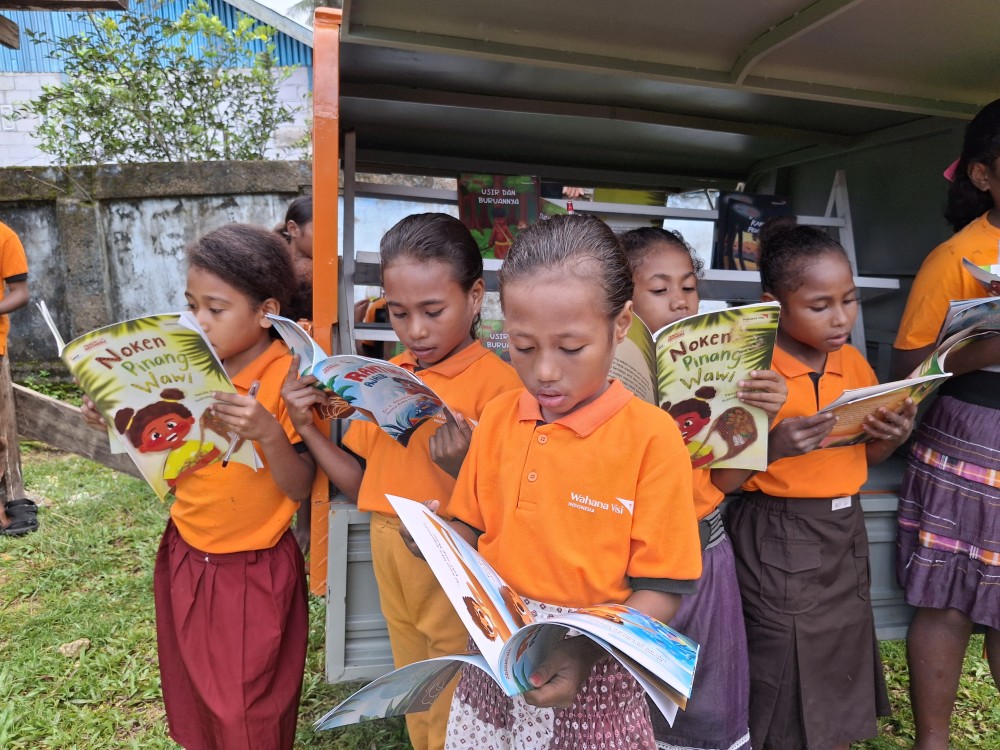Anora’s Story: Facts on Connecting Health with Economy Issue

Anora, a four-year-old child, weighs only 12.4 kg*. Ideally, a girl her age should weigh 16 kg. After several weigh-ins at the Posyandu (Integrated Health Post), Anora's weight often drops and struggles to rise again. This is due to Anora's inadequate nutritional intake.
She lives in one of the remote villages in Ende Regency, NTT (East Nusa Tenggara). In a simple house, Anora lives with eight other family members. Her parents work as farmers daily, without a fixed income. Anora often accompanies her parents or grandparents to the fields. Anora's family has no choice but to take her to the fields because there is no one to look after her at home.
The food mainly consumed by Anora is only carbohydrates such as corn and sweet potatoes. "If we buy fish, it's only when the sellers come occasionally. As for eggs, we only buy one for her. One egg costs Rp 3,000. Anora usually eats rice or corn with vegetables. Sometimes with fish or eggs," says Mama Priska, Anora's mother.
Anora's parents find it difficult to provide her with a balanced nutritious diet. They always try their best, but many obstacles need to be overcome for Anora to get enough nutrition. Currently, Anora's protein needs still have to be purchased from sellers around the village. Mama Priska's knowledge of processing local food ingredients is also limited.
Mama Priska is still trying to find the best way to increase Anora's appetite. She has started trying to cook vegetables in various ways, as she learned from the Pos Gizi (Nutrition Post) classes in the village. The Pos Gizi activities in Anora's village are facilitated by Wahana Visi Indonesia (WVI) in collaboration with local health workers and cadres.
"I feel that Anora's condition is not good. There are children younger than her whose weight has increased more," she said. As a mother, she hopes Anora's menu can be more nutritious. Mama Priska wants to be able to process the food ingredients available in the village. "I want Anora to eat what I cook," she expressed.
Mama Priska realizes that menu containing protein such as fish, meat, and eggs are essential for her child's growth and development. However, various obstacles such as access to source of protein, knowledge to process local food ingredients into nutritious menus, and unstable family economic conditions make it impossible for Anora to get enough nutrition every day, every meal.
The issue of fulfilling children's nutrition in the remote areas of Indonesia does not only require intervention in the health sector. Complex problems such as those experienced by Mama Priska and Anora require cross-sector assistance. Therefore, WVI initiated the AMPUH (Action to Prevent Malnutrition with Daily Egg Food) project, which will not only fulfill children's additional daily protein intake but also trigger family economic movement. Through AMPUH, vulnerable families will receive capacity development to start a laying hen farm. Access to eggs as an additional protein source for children becomes easier. Families also get additional income by selling some of their livestock products.
WVI believes that with the support of various parties, including you, children in Ende can grow and develop optimally. Children can consume enough nutritious food, and every parent can nurture and provide for them well.
*Weight measuring data in February 2025.
Author: Mariana Kurniawati (Communication Executive)



